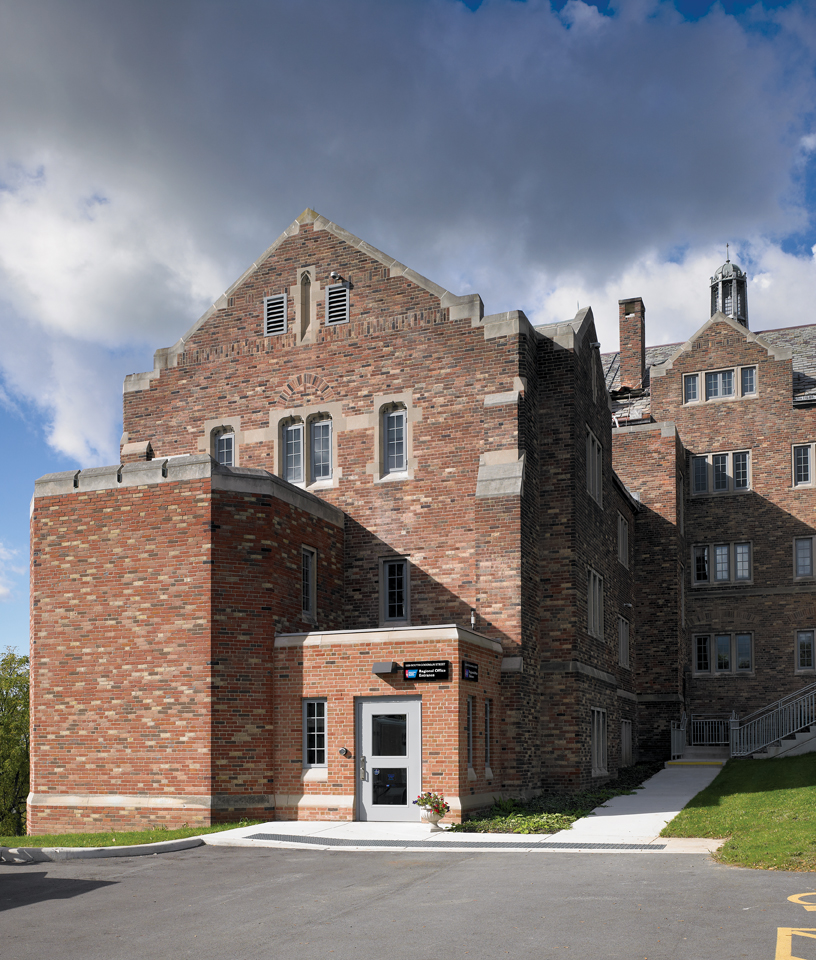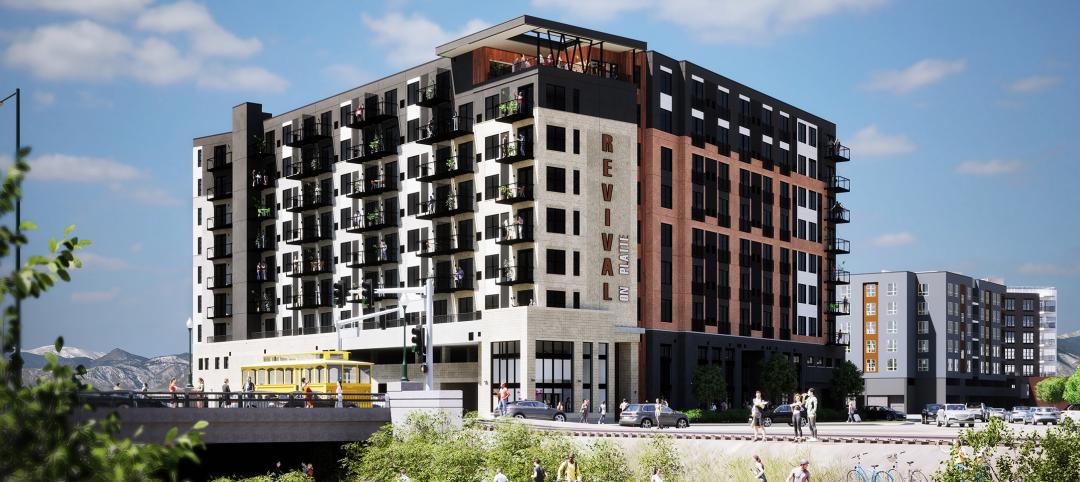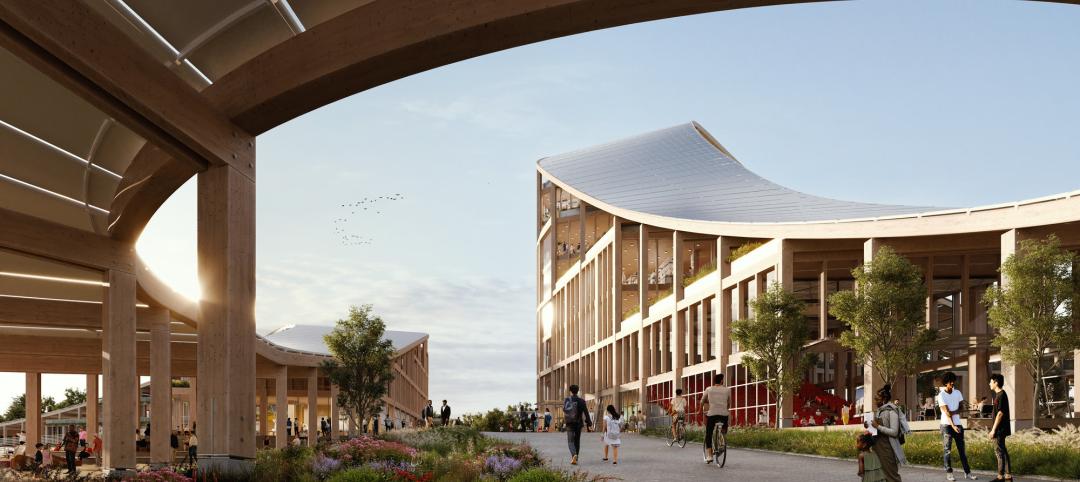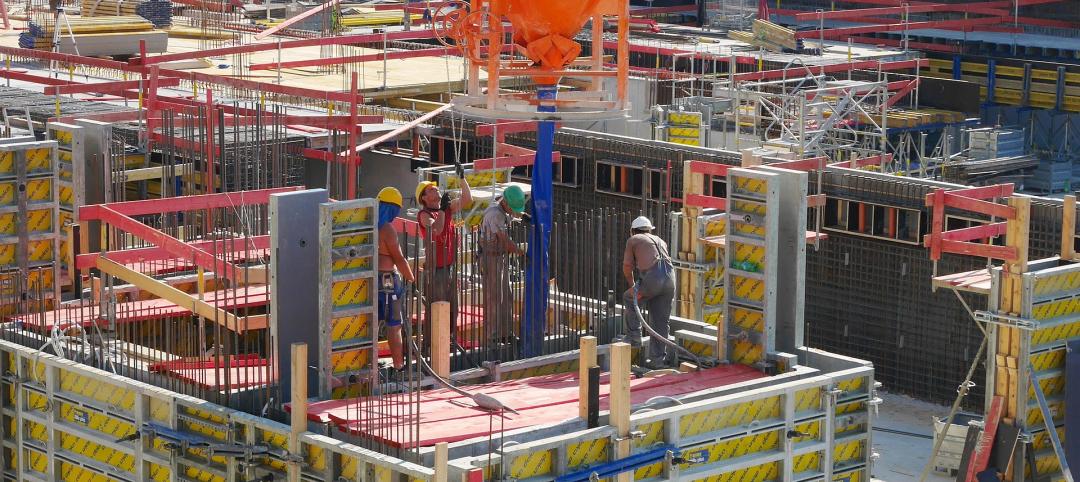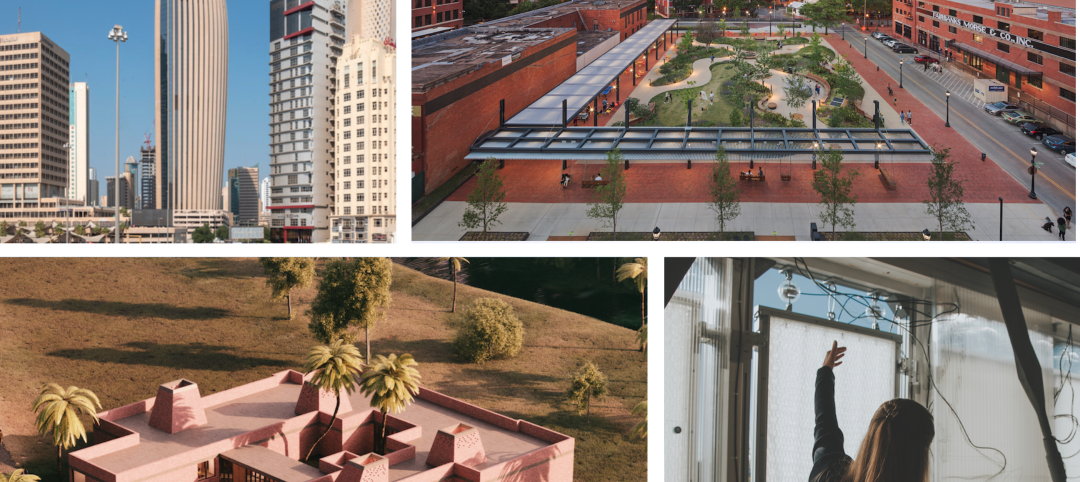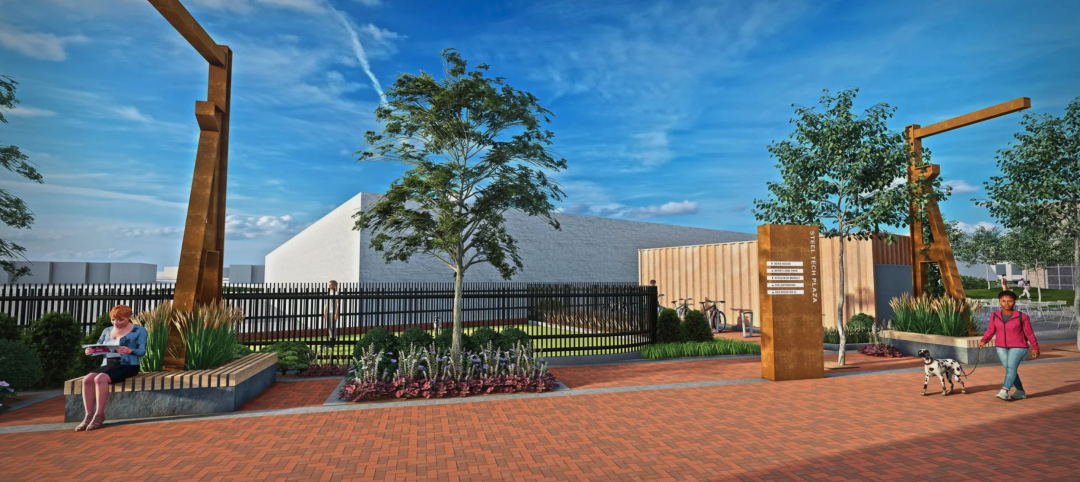The B. Thomas Golisano Hope Lodge Hospitality House, located on the edge of the Colgate Rochester Crozier Divinity School (CRCDS) campus in Rochester, N.Y., was destined to change the lives of many who have called the building home.
Constructed in the 1930s, the structure hosted CRCDS’s theological studies while serving as a seminary dormitory. Composed and rendered in the collegiate gothic style by architect James Gamble Rogers, the “Castle on the Hill” echoed similar structures found on the campuses of Yale, Columbia, and Northwestern.
Over time, the number of students requiring dormitories dwindled, and CRCDS found itself with more space than it needed.
Eventually, school officials decided to operate within a smaller footprint. However, CRCDS was still tasked with maintaining all campus buildings, including the now-vacant structure. As expenses related to the building mounted, school officials considered demolishing it.
With the future of the structure in doubt, the nearby American Cancer Society’s Rochester Hope Lodge was quickly outgrowing its facility of 25 years. It did not take long before CRCDS and American Cancer Society realized the benefits of a partnership.
Click here to view profiles of other reconstruction projects that have been recognized as part of BD+C's 28th Annual Reconstruction Awards.
As the partnership between CRCDS and American Cancer Society evolved, the CRCDS’s vacant theological studies center and seminary dormitory were selected as the home for the new Hope Lodge. Design concepts were quickly formulated, and a budget established thanks to $8 million in fundraising efforts, led by philanthropist B. Thomas Golisano.
The early stages of the reconstruction project progressed smoothly until a hazardous materials survey conducted on the facility revealed the presence of asbestos in the finishes and roofing materials. But it was also infused in the plaster covering the walls and ceilings throughout the buildings.
GIVING THE BUILDING ENVELOPE THE ONCE-OVER
In addition to the asbestos removal, the existing floor layout would have to be gutted as the narrow double-loaded corridor did not meet current egress requirements. The single-occupant rooms were cramped and much too small for the needs of Hope Lodge. Finally, the historic masonry exterior and the slate roof of the building had suffered decades of deferred maintenance and were in need of repair.
“We were, in many ways, creating a new building envelope. The restoration of the historic exterior required close coordination with the new interior perimeter,” says Jim Durfee, AIA, principal architect, Bergmann Associates.
The Building Team, consisting of local firms Bergmann Associates (architect), Torchia Structural Engineering (structural engineer), and LeChase Construction (construction manager), faced other design issues on the Hope Lodge project as well.
PRODUCT LIST
B. Thomas Golisano Hope Lodge, Hospitality House, Rochester, N.Y.Masonry Cleaner: Sure Klean
Roofing: Carlisle Epdm
Windows: Oldcastle Ogep Series 2000
Gypsum Board: USG
Window Treatments: Drapery Industries
Interior Signage & Donor Wall: Id Sign Systems
Artwork: Great American Art (Brontman’s Corporate Dimensions)
Furniture: Om Workspace (Carolina & Grand Rapids)
Lamps: Crown Electric
Interior Architectural Woodwork: Solid Surface, Zodiak
Solid Surface: Corian
Plastic Laminate: Formica
Plastic Laminate: Wilsonart
Acoustical Ceiling: Acoustical Ceiling Tile, Armstrong World Industries, Inc.
Tile Carpeting: Modular Tile Carpet, 24" X 24" Shaw Contract Group Collection, Dressed To Kill
Modular Tile Carpet: 18" X 18" Bentley Prince Street Collection, Saturnia
Modular Carpet Tile: 24"X24" Patcraft & Design Weave Collection, Construkt Series
Walk-Off Mat: 12"X12" Roppe Surface Walk-Off Mat Collection, 'Rop-Cord' Rubber (Tire Tread) Tiles
Interior Paint: Sherwin Williams, Pro-Green Interior Latex
Toilet Compartments: Hadrian
Plumbing Fixtures: American Standard
Fan Coils: Enviro-Tec Johnson Controls
Heat Recovery Units: RenewAire
Air Handlers: Mcquay
Elevators: Otis
One complicated design-related issue involved the original engineering of the two adjoining structures, Trevor and Eaton Halls. The independent structures each had their own floor levels, which did not align. “The existing footprint was particularly challenging. The fact that these were really two separate buildings separated by a quirky staircase made achieving a clear floor layout difficult,” says Durfee.
In order to get the buildings to function as one structure, a strategically located ramp allowed the second level of the structure to function contiguously while a centrally located stair with multiple flights and landings to each building provided occupant circulation.
The Building Team also faced low floor-to-ceiling heights that complicated insertion of a new HVAC system. Eventually, a four-pipe, console fan coil system was installed in order to minimize the need to extensive air distribution ductwork.
“The biggest challenge was threading new utilities through the new layout working around a very limited floor to floor height. This required careful design and utility coordination in order to maintain our aesthetic goals for the space,” says Durfee.
Handicap accessibility throughout the facility also proved problematic. The development of two exterior access points on different levels of the complex and the strategic insertion of two new elevator shafts provided a solution.
BUILDING TEAM EARNS CLIENT’S RESPECT
Hope Lodge provides free lodging and support for out-of-town patients drawn to the regional medical treatment centers in Rochester. By offering patients and caregivers a temporary home during extended periods of treatment, the Hope Lodge program frees patients from emotional and financial burdens, allowing them to concentrate on care, recovery, and quality of life.
The new 28,000-sf B. Thomas Golisano Hope Lodge Hospitality House doubled the capacity of the former Rochester Hope Lodge, while also providing 8,000 sf of office space for the American Cancer Society.
Irregular shell space resulted in unique layouts for all 30 guest rooms, each of which included a private bathroom. Common spaces and services include laundry, kitchen, dining room, living area, and a library.
On the exterior, the gothic architecture was fully restored, including the masonry, the replacement of the slate roof, and new steel sash windows that maintained the appearance of the original windows.
“I was initially concerned about the various complexities inherent in this project and with the structure of the building we were to renovate,” says Matthew Flanigan, regional vice president, American Cancer Society. “Very quickly, the Building Team assured us they were up to the task, and just as quickly began to show they were qualified. Working with this team of professionals was seamless through the many phases of planning to post-construction wrap up. Ultimately, it’s the Hope Lodge Hospitality House guests that have confirmed our true pleasure in this outcome.” BD+C
--
Click here to view profiles of other reconstruction projects that have been recognized as part of BD+C's 28th Annual Reconstruction Awards.
Related Stories
Multifamily Housing | May 1, 2023
A prefab multifamily housing project will deliver 200 new apartments near downtown Denver
In Denver, Mortenson, a Colorado-based builder, developer, and engineering services provider, along with joint venture partner Pinnacle Partners, has broken ground on Revival on Platte, a multifamily housing project. The 234,156-sf development will feature 200 studio, one-bedroom, and two-bedroom apartments on eight floors, with two levels of parking.
Mass Timber | May 1, 2023
SOM designs mass timber climate solutions center on Governors Island, anchored by Stony Brook University
Governors Island in New York Harbor will be home to a new climate-solutions center called The New York Climate Exchange. Designed by Skidmore, Owings & Merrill (SOM), The Exchange will develop and deploy solutions to the global climate crisis while also acting as a regional hub for the green economy. New York’s Stony Brook University will serve as the center’s anchor institution.
Market Data | May 1, 2023
AEC firm proposal activity rebounds in the first quarter of 2023: PSMJ report
Proposal activity for architecture, engineering and construction (A/E/C) firms increased significantly in the 1st Quarter of 2023, according to PSMJ’s Quarterly Market Forecast (QMF) survey. The predictive measure of the industry’s health rebounded to a net plus/minus index (NPMI) of 32.8 in the first three months of the year.
Sustainability | May 1, 2023
Increased focus on sustainability is good for business and attracting employees
A recent study, 2023 State of Design & Make by software developer Autodesk, contains some interesting takeaways for the design and construction industry. Respondents to a survey of industry leaders from the architecture, engineering, construction, product design, manufacturing, and entertainment spheres strongly support the idea that improving their organization’s sustainability practices is good for business.
Codes and Standards | May 1, 2023
Hurricane Ian aftermath expected to prompt building code reform in Florida
Hurricane Ian struck the Southwest Florida coastline last fall with winds exceeding 150 mph, flooding cities, and devastating structures across the state. A construction risk management expert believes the projected economic damage, as high as $75 billion, will prompt the state to beef up building codes and reform land use rules.
| Apr 28, 2023
$1 billion mixed-use multifamily development will add 1,200 units to South Florida market
A giant $1 billion residential project, The District in Davie, will bring 1.6 million sf of new Class A residential apartments to the hot South Florida market. Located near Ft. Lauderdale and greater Miami, the development will include 36,000 sf of restaurants and retail space. The development will also provide 1.1 million sf of access controlled onsite parking with 2,650 parking spaces.
Architects | Apr 27, 2023
Blind Ambition: Insights from a blind architect on universal design
Blind architect Chris Downey shares his message to designers that universal design goes much further than simply meeting a code to make everything accessible.
Design Innovation Report | Apr 27, 2023
BD+C's 2023 Design Innovation Report
Building Design+Construction’s Design Innovation Report presents projects, spaces, and initiatives—and the AEC professionals behind them—that push the boundaries of building design. This year, we feature four novel projects and one building science innovation.
Mixed-Use | Apr 27, 2023
New Jersey turns a brownfield site into Steel Tech, a 3.3-acre mixed-use development
In Jersey City, N.J., a 3.3-acre redevelopment project called Steel Tech will turn a brownfield site into a mixed-use residential high-rise building, a community center, two public plazas, and a business incubator facility. Steel Tech received site plan approval in recent weeks.
Multifamily Housing | Apr 27, 2023
Watch: Specifying materials in multifamily housing projects
A trio of multifamily housing experts discusses trends in materials in their latest developments. Topics include the need to balance aesthetics and durability, the advantages of textured materials, and the benefits of biophilia.


